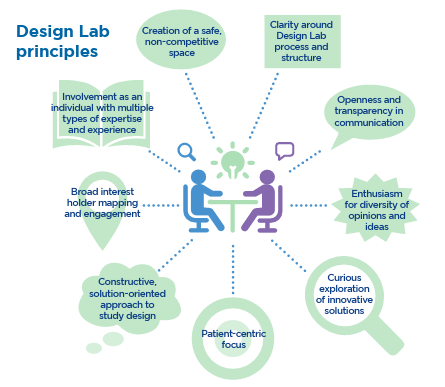Research and academic partnership supports transition from device development to clinical studies
FOR IMMEDIATE RELEASE: May 29, 2018
CONTACT: Amy West, 617-636-6025, awest@tuftsmedicalcenter.org
BOSTON – Leaders from Tufts Clinical and Translational Science Institute (CTSI) and Massachusetts Institute of Technology (MIT) announced today a new collaboration to advance and expedite translational research from device creation and testing to medical practice for patient benefit. To more seamlessly facilitate this process and promote successful translation, Tufts CTSI and MIT are developing a new research initiative, T.5 Capacity in Medical Devices.
“Translating a research idea into a medical device or diagnostic tool that will have impact on health is a challenging process that requires multiple design improvements during the early stages of prototype development, before human testing in clinical research settings,” said Harry P. Selker, MD, MSPH, Dean and Principal Investigator of Tufts CTSI. “This exciting collaboration will focus on using clinical insights to fine-tune early device testing and design sequences of promising ideas to make them more likely to become successful medical applications.”
This effort, coined the “T.5” phase of research translation, preludes the traditional translational steps, T1 through T4, which represent translation from the laboratory to impact on health.
Tufts CTSI, a member of the National Institutes of Health’s Clinical and Translational Science Awards (CTSA) Consortium since 2008, will draw upon its nationally recognized strengths in innovative study design, process improvement, and stakeholder engagement. MIT’s Clinical Research Center (CRC), part of its Institute for Medical Engineering and Science (IMES), will provide expertise in device and diagnostic evaluation at the interface of academia, clinical practice, and industry.
The initiative will include:
- A T.5 Resource Center
- Preclinical support & early phase human subjects research
- Proof of concept studies
- De-risking medical device translation
- Acceleration of rapid prototyping (design/fabrication)
- Experiential learning/training programs
“Traditionally T1, or ‘bench-to-bedside,’ is seen as the first phase of translational research, but the work that occurs before T1 is critical,” said Dr. Selker. “We are delighted to join forces with MIT to support research teams at this early, pre- translational stage to efficiently turn device concepts into testable prototypes, and effectively incorporate clinical insights into the full span of preliminary research and development.”
“We are excited to embark on this collaboration with Tufts CTSI and its partners in transforming nascent ideas into clinical impact,” said Elazer R. Edelman, MD, PhD, Director of MIT’s IMES. “This new partnership with Tufts CTSI enables MIT to provide unique resources and perspectives in shifting the focus from translation to transformation — emboldening ideas and changing them to accelerate and de-risk the challenging process of research and development.”
Institutions affiliated with Tufts CTSI and MIT will be able to participate in, and benefit from, resources and services offered through the T.5 Capacity in Medical Devices Program.
About Tufts Clinical and Translational Science Institute (CTSI)
Tufts CTSI (www.tuftsctsi.org), established in 2008, supported by the National Institutes of Health (NIH), is dedicated to stimulating, supporting, and expediting innovative clinical and translational research, with the goal of improving the public’s health. Founded by Tufts University and Tufts Medical Center, it also includes other academic institutions (including all the schools of Tufts University, Brandeis University, MIT, Northeastern University; and RAND), the hospitals affiliated with Tufts University School of Medicine, community stakeholders, and various members of the health care industry. Tufts CTSI’s purpose is to accelerate the translation of laboratory and medical research into clinical use, widespread medical practice, and into improved health care delivery and health policy. It connects people to research resources, consultation, and education, and fosters collaboration with scholars of all disciplines and with community members, with the ultimate goal of improving the health of the public. Tufts CTSI is funded by a Clinical and Translational Science Award (CTSA) from the NIH National Center for Advancing Translational Sciences, award number UL1TR002544.
###



